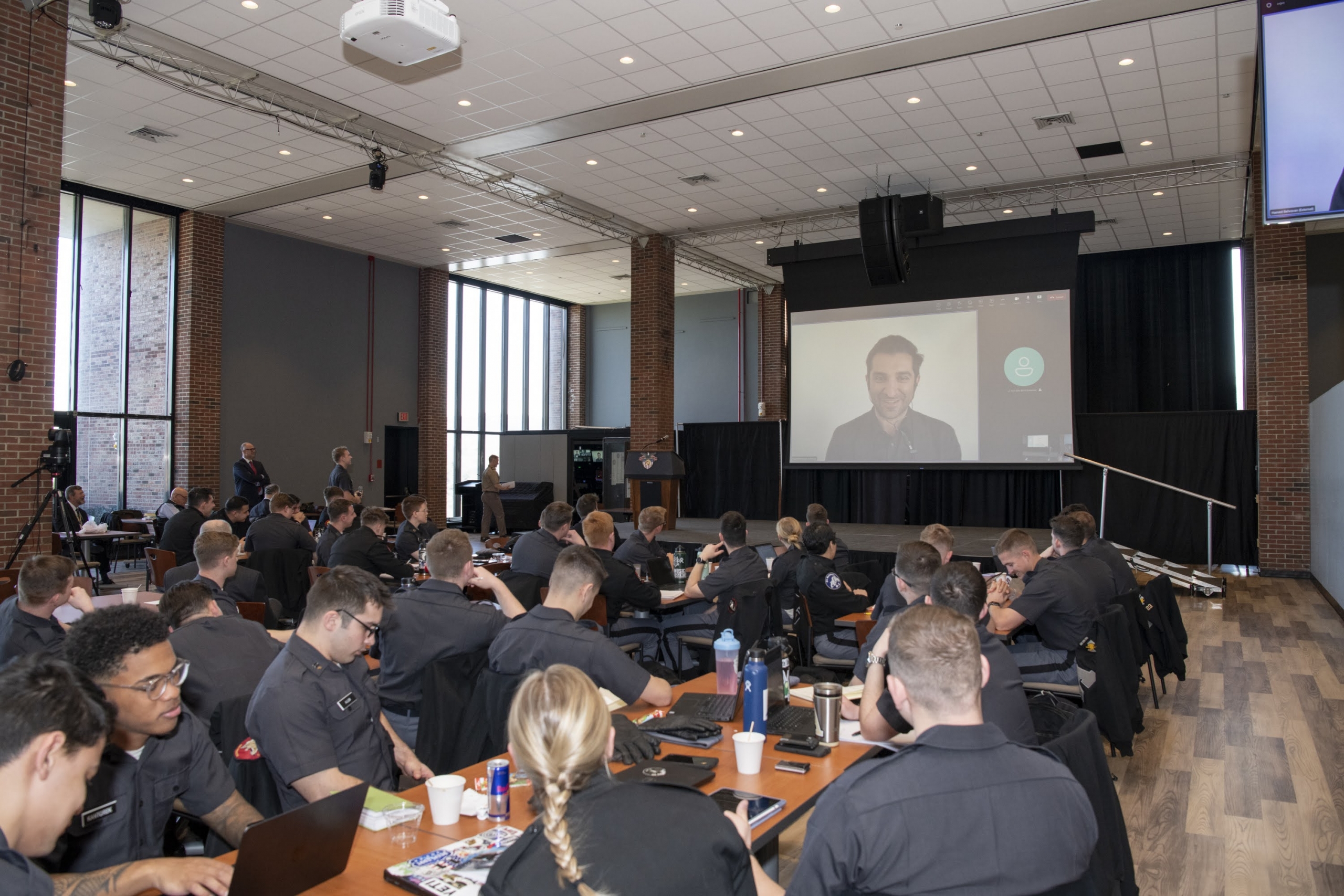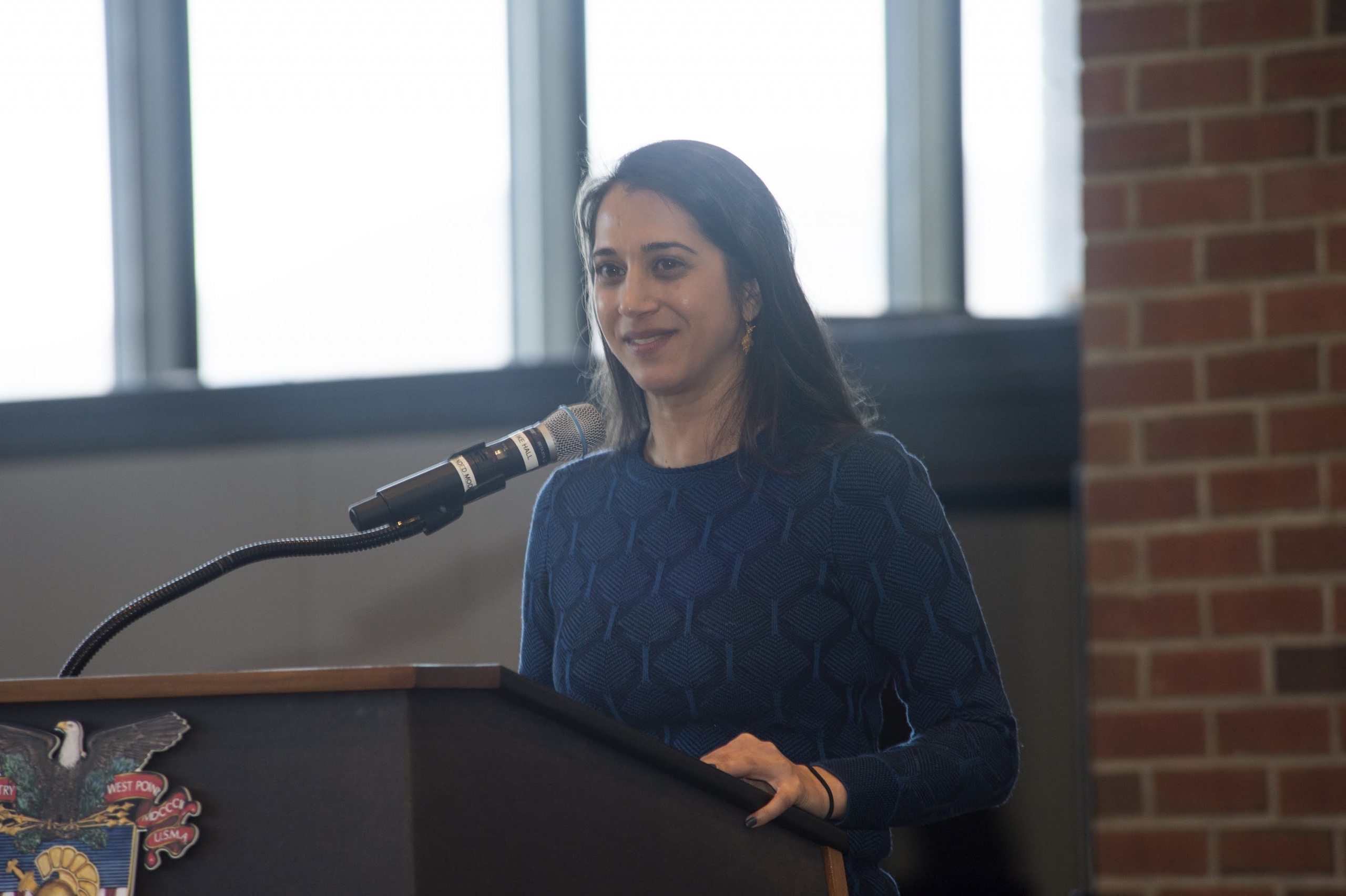NEWS
2023 Workshop on Civil-Military Operations
Center for the Study of Civil Military Operations
2023 STUDENT WORKSHOP ON CIVIL-MILITARY OPERATIONS
By Sam Stevens, DT Institute’s Director of Operations
As part of its portfolio under the Research and Grants Division, DT Institute supports West Point Military Academies’ Center for the Study of Civil-Military Operations (CSCMO) through an impact grant of $1.4 million dollars covering a period of 5 years. DT Institute collaborates with CSCMO to provide education on contemporary development and peacebuilding practices to West Point cadets and promotes the concept of civilian-military cooperation to new audiences. We are building closer ties between civilian and military entities that often exist simultaneously in sensitive, post-conflict environments by introducing peacebuilding concepts to the future leaders of the United States Army.
In March 2023, DT Institute staff and one of its Board Members and a graduate of West Point, Michael Hess, participated in CSCMO’s 2023 Student Workshop on Civ-Mil Operations, held at West Point’s Ike Hall. The Workshop, sponsored by the USMA Class of 1978 and organized by the CSCMO, is for Cadets enrolled in EV482: Military Geography, which is the capstone, integrative experience for Geography and GIS majors, and includes many Defense and Strategic Studies (DSS) majors as well as other Cadets who take it as an elective.
The subject of this year’s Workshop was the Geopolitics of Disinformation in the Middle East with the keynote address given by Ambassador Jonathan R. Cohen. The Army’s current doctrine codifies that US military forces will increasingly work with and alongside a wide range of other actors including US and host nation government officials, international and non-governmental organizations (NGOs), and of course local leaders and populations. The focus of this Workshop provided education to the Cadets about three areas in which they will most likely find themselves leading Soldiers in the near future:
- contending with malign activity by Iran on a global/regional basis,
- responding to urban based humanitarian disasters and having to plan, prepare, and
- deal with civilian populations in these operations.
As the experiences in contested cities like Beirut, Baghdad and within areas of Israel have demonstrated, even limited combat in urban areas can produce devastating outcomes. Future military leaders will be better prepared to meet these challenges with a stronger understanding of the concepts and civilian actors they are likely to encounter in future kinetic environments.
DT Institute staff directly contributed to the event by providing expert insight into the intricate nature of the Iranian conflict, how the Iranian government projects its power and influence, and the effects of their authoritarian hold on the civilian population. Joel Rayburn, former Deputy Assistant Secretary for Levant Affairs and Special Envoy for Syria, gave the opening remarks and touched on current affairs across the Middle East and the diplomatic challenges the US Government (USG) faces. “Iran has interests and objectives that are antithetical to that of the US and our allies. The current regime has a shelf-life but what comes next is yet to be seen or predicted,” said Mr. Rayburn.
Hamed Behravan, DT Institute’s a Vice President of Media, Technology, and Human Rights Division, and the Director of Iran Programs discussed Iran’s multi-faceted disinformation network. The Iranian state employs overt propaganda tactics through 12 state-sponsored news networks globally, and other less visible techniques such as videos games. Covert measures of influence include fake websites and influencer profiles that push state media narratives and spread maligned information.
Further briefs were provided by Jodi Rosenstein from United States Agency for International Development (USAID) Bureau for Conflict Prevention and Stabilization (CPS) Program Office. Ms. Rosenstein discussed the importance of cooperation between the 3 D’s (Diplomacy, Development, and Defense) in building sustainable peace in fragile environments. “Any environment you find yourself in down-range, from now on will always be a joint civilian-military venture, so prepare yourself for that eventuality now,” said Ms. Rosenstein.
The significance of Iran’s use of cultural Heritage in influence operations was presented and discussed by COL Scott DeJessee, COL Dominique Fernandez (FR) and CPT Hayden Bassett, representing US Army’s Civil Affairs. Ambassador Cohen shared his observations on the current situation in the Middle East. He also shared his own perceptions on the importance of Civil-Military Operations as a response to Iranian influence in the region.
Lieutenant General (Ret) Kenneth W. Hunzeker, Chairperson for CSCMO, provided closing remarks and seemed to sum-up much of the day’s conversation in one phrase, “We’re not going to shoot our way out of this one.” The layers of conflict and contention within the Iranian conflict are deep, wide, and thoroughly intertwined with a range of global power interests in the region. Earlier in the day, Mr. Rayburn had remarked that, “Effective diplomacy is showing up. Diplomatic and strategic partnerships come down to personal relationships.” Answers to these problems will require generational solutions. Some of the future leaders who will soon inherit the responsibility for those relationships were present in Ike Hall, March 20, 2023.


